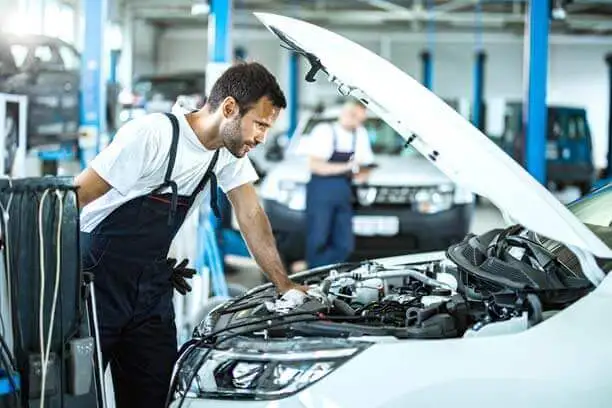Featured
Long-distance travel can be an interesting chance to check out brand-new places, but it's essential to ensure your vehicle is gotten ready for the trip. A little preventative maintenance can go a long way in preventing failures and guaranteeing a smooth, stress-free adventure. Here's an extensive overview to preparing your car for a long-distance journey.
![]()
![]()
Conclusion. Proper automobile prep work can make all the distinction in having a smooth, satisfying road journey. By checking fluid degrees, checking brakes and tires, guaranteeing your battery and lights are in excellent condition, and packing an emergency situation package, you can concentrate and avoid typical problems on enjoying your experience.

- Perform a Complete Liquid Examine. Liquid degrees play a considerable function in your automobile's overall performance, and maintaining them in check prior to a long road journey is important. Beginning by examining the engine oil, brake liquid, transmission windshield, liquid, and coolant washer liquid.
- Check the Tires. Start by examining the tire stress making use of a gauge and adjust them to the maker's advised degrees, which can be discovered in the owner's manual or on a sticker label inside the vehicle driver's side door frame. Examine the tire tread depth to make sure they are not used down.
- Examine the Battery. A dead battery can leave you stranded in the middle of nowhere, so ensuring your battery is in great shape is critical. Examine for any noticeable deterioration on the terminals and clean them with a combination of baking soft drink and water if required.
- Evaluate the Brakes. If your brakes are making unusual noises or you observe a difference in exactly how the brake pedal feels, have them examined before you leave. Ensure the brake liquid is at the correct degree to keep optimal braking performance.
- Inspect the Air Conditioning and Heater. Lengthy journeys can include both chilly and hot problems, so it's vital to examine that your car's home heating and cooling system is working appropriately. Evaluate the air conditioning and heating unit to make certain they are functioning properly. If you see unusual smells, seems, or a lack of cooling or home heating, it may deserve visiting a technician before your journey to avoid pain throughout your journeys.

- Ensure All Lights Are Working. Examine that all lights-- headlights, taillights, brake lights, turn signals, and danger lights-- are working. In addition, guarantee your fronts lights are tidy and not lowering due to dust or clouding, as this can substantially minimize your capacity to see at night.
- Change Windscreen Wipers and Check the Windscreen. Presence is important when driving lengthy distances, especially throughout rain, snow, or other damaging weather conditions. Prior to you leave, evaluate your windscreen wipers to guarantee they remain in excellent condition and change them if they are broken, streaking, or ineffective. Check the windscreen for chips or fractures, as these can increase while driving at high rates, making it difficult to see the roadway clearly.
- Pack an Emergency Situation Set. Despite detailed preparation, it's constantly clever to have an emergency situation set in case something goes wrong throughout your journey. Include basics such as a first-aid set, flashlight, jumper cables, basic devices, tire repair package, and an extra tire. It's additionally a good idea to load mineral water, non-perishable treats, and a covering, particularly if you're taking a trip through remote locations. This set can be very useful if you find on your own stranded or in an emergency scenario.
- Plan Your Path and Take Breaks. Mapping out your traveling path ahead of time can aid avoid unforeseen detours or roadway closures. See to it to intend for normal breaks to stretch your legs, moisturize, and refuel both your cars and truck and yourself. Fatigue can establish in after hours of driving, so it's vital to quit every couple of hours to keep performance and safety.
- Arrange a Pre-Trip Assessment. If you're uncertain about your vehicle's readiness, consider scheduling a pre-trip assessment with a trusted technician. A professional evaluation can determine any kind of potential concerns that can occur during your trip and provide you satisfaction understanding that your auto is in top form.
Conclusion. Proper automobile prep work can make all the distinction in having a smooth, satisfying road journey. By checking fluid degrees, checking brakes and tires, guaranteeing your battery and lights are in excellent condition, and packing an emergency situation package, you can concentrate and avoid typical problems on enjoying your experience.
Latest Posts
Fashionable Safety Begins Below
Published Apr 25, 25
1 min read
Design Your Perfect Shower Room
Published Apr 25, 25
1 min read
Quick Car Repair Solutions - Fix Your Car with Montclare Auto Repair Hassle-Free
Published Apr 25, 25
2 min read